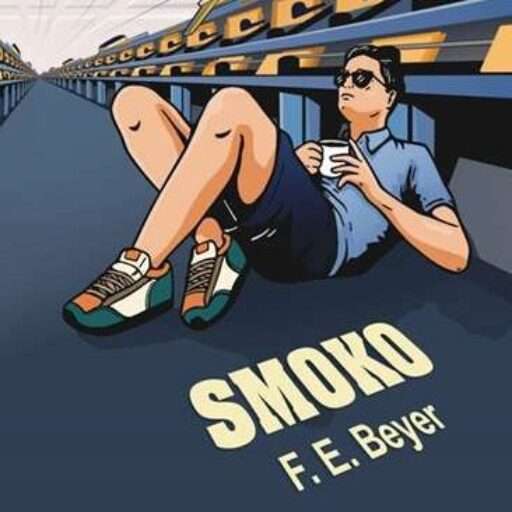
HOLIDAY GONE WRONG
“I don’t think I set the alarm, did you?” Robert asked.
“No dear…you always do it.. ”
“I’m not sure I did. Can we go back?”
Why is his mission in life to make us late? Jane took a couple of deep breaths. “I’m sure you’ve set it. Shina will be there at two to clean in any case, and I checked all the windows.”
Robert’s face was a sallow mask of anxiety for the rest of the drive. Jane ignored him and looked out the window as the midlands raced by – hedges, fields, Herefordshire cows… There was a long journey ahead of them. If we weren’t rich, I wouldn’t have to bother with these overseas holidays, Jane said to herself. Then she smiled knowing the horror such a thought revealed would cause her husband.
“What are you so happy about?”
“Nothing dear, looking forward to the trip…that’s all.”
Having done some research, she had a plan for Argentina. What is Robert going to do though? Eat steak and drink whisky most likely. Fifty-year-old Jane Steward, the press would report, lived in a stone mansion, a grade III historical building, in the vil age of Wickham, Northamptonshire, population three hundred. She worked as a development officer for the county. She and her husband, Robert Steward, lived an Aston Martin lifestyle made possible by the family business: the Stewards owned the Bandon supermarket chain. They liked Robert down at the local pub, ‘The Schmoozing Cat.’ He drank top-shelf whisky and was never shy of shouting a few ales for the townsfolk, most of whom, truth be told, weren’t short of a bob either. Jane was slim and good-looking; Robert was pudgy, close to ugly, and sported a Boris Johnson haircut, but at least he was energetic for his age. Some thought them an unlikely couple, but mostly they were happy.
The British Airlines flight was from London Heathrow to Ezeiza in Buenos Aires via Amsterdam.
They both managed to sleep during the flight. On arrival, their driver was waiting with a big sign. Jane had booked the hotel transfer, a white combi van with plenty of space. The driver had a stomach like an overstuffed haggis; he barely fit in behind the wheel.
He was polite though, and sweating profusely insisted on loading up the couple’s significant luggage. This was their first time in South America, and from the motorway, Jane thought the city looked like a rundown Madrid. The sky was clear and light blue, it was an illusion surely, but it seemed higher than in Europe. Along an avenue in the centre of the city, Buenos Aires started to look more like Paris. The neoclassical limestone Congress had scaffolding on its bronze dome – not a great sign for Jane, she reckoned it wouldn’t be open for tours. She was right.
The continental vibe vanished as they drove down the hill to Puerto Madero. There, skyscrapers not out of place in a development zone on the outskirts of Shanghai stood out beyond the docks featuring Manchester red brick buildings. The van turned onto a street shaded by large trees and pulled up in front of their hotel – a revitalised industrial building – it looked impressive, as it should have: a double room for the night cost more than an Argentine teacher made in a month.
The bezel of Robert’s Hublot watch was diamond-encrusted, but the crystal and band were tasteful y plain. He now referred to this expensive piece of workmanship and calculated: “A twenty-six-hour journey door to door, not so bad.” The driver began unloading luggage. Jane and Robert got out to help. The driver stopped. Looking over Robert’s shoulder, he had spotted something. He dropped a suitcase and ran to the hotel entrance. Starting slow, once in motion he covered the metres like an elephantine Usain Bolt. Jane was outraged – did he know how much that case cost?
She had bought a very expensive set of luggage especially for this trip, not to mention the stuff inside! Then she saw Robert was in trouble: he was fighting on the ground with a black-haired man wearing a hoodie and jeans. For a moment she froze. Next, somebody grabbed her from behind.
She turned and received a fist in the face. Her vision went blurry, but she aimed a kick at where she guessed the groin of her attacker was. She connected with a thigh and her wrist was released – through watering eyes, she made out a figure wearing a motorbike helmet. She ran for it…but had to look back. Robert was still wrestling on the ground. The man in the helmet threw one of their suitcases into a red car that had pulled up beside the van. Jane ran back and kicked the man in the hoodie, who got off Robert, then came at her and threw her to the ground. There was a gunshot and Robert started screaming. Jane was able to get up as the guy in the hoodie backed off her – and then she saw the man in the helmet had a pistol pointed at her. His visor was up now, such young eyes. He was saying something, “tranquila, tranquila. ”
“Bloody what?” Jane, with a lot of fight still in her, charged him.
***
Robert received emergency treatment at Hospital Clinicas before being transferred to the private Hospital Suiza, where he remained in a stable condition. The bullet had hit him in the thigh. Jane wasn’t so lucky; she was shot through the chest and died in the ambulance. Her murder made the major English papers – this was a very bad look for Argentina.
The black and white video of the incident, taken from a security camera on the opposite side of the street to the hotel, appeared in the Argentine papers, but not the foreign ones. It was hardly graphic, the picture was grainy, and you could barely see the pistol. What was clear was the shooter’s arm extending and the shock wave that went through Jane’s body. Presumably, the prefectura handed the tape over to the federal police, who shouldn’t have given it to the press.
The president addressed journalists on the matter. His small moustache twitched and he wheezed more than normal, signs he was serious.
“The full weight of the law must come down on the perpetrators. We must find them and be severe.”
The president himself lived in Puerto Madero, he used to walk to work – he loved it, but since becoming president, his security detail wouldn’t let him walk because of the danger. “The people of Argentina need to feel safe in the street. Tourists need to feel safe.” The local press published a letter from the Hotel Association to the government, pleading with them to do something. This murder was one in a long line of violent incidents up to now ignored. Argentina couldn’t afford a dip in foreign tourist numbers.
Police arrested the driver of the white combi, but released him after an hour of questioning. They had no leads about the attackers or the driver of the red Peugeot. Then, several days later, they found one of the armed robber’s girlfriends. From her, the police got the name of the hoodie-wearing boyfriend and the shooter. The two men were planning to make an illegal crossing into Bolivia – not a bad plan, but they used their real Venezuelan passports to buy tickets at Retiro bus station in Buenos Aires. In the northern city of San Salvador de Jujuy, the gendarmerie dispatched officers to a house in the large villa miseria where the two young men were hiding. The press didn’t report why they had paused before reaching the border. Once under arrest, the authorities took photos of both culprits on their knees with arms handcuffed behind their backs. To either side of them stood a tall, broad, and sombre gendarmerie officer wearing a camouflage uniform: a cruel image, but it sent a message. It recalled pictures of ISIS fighters with their captives, or terrorism suspects photographed with US soldiers before flying to Abu Gharib or Guantanamo. A dark place, most likely worse than either of those two famous institutions, awaited the young Venezuelans.
